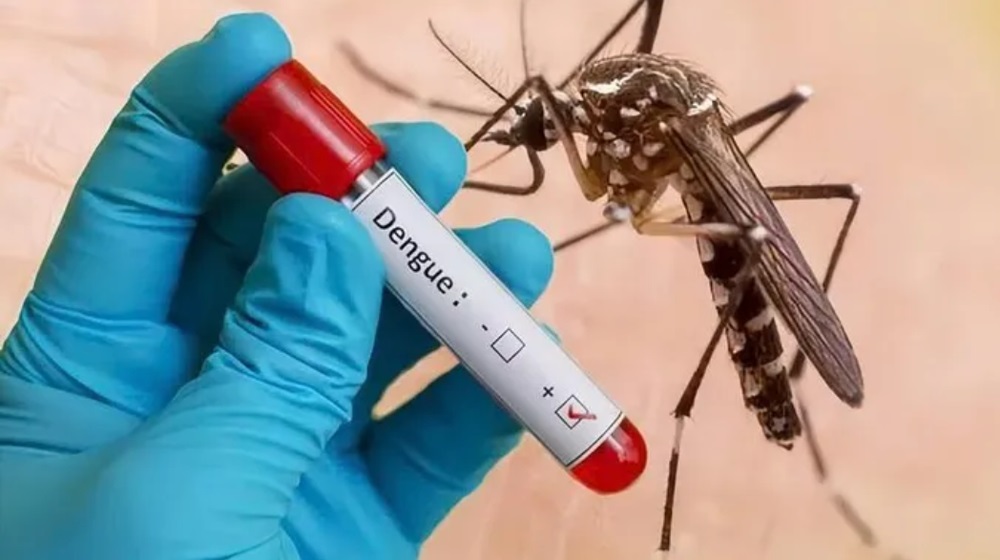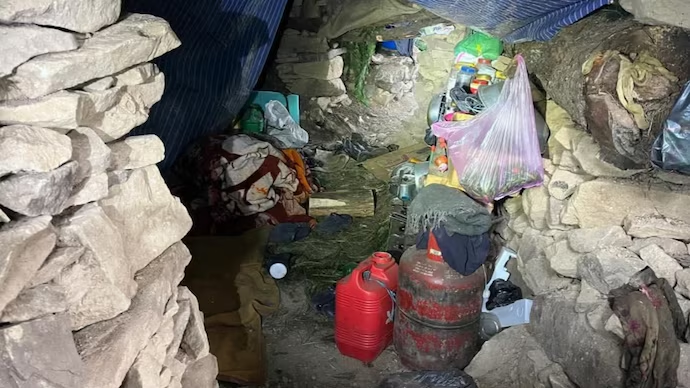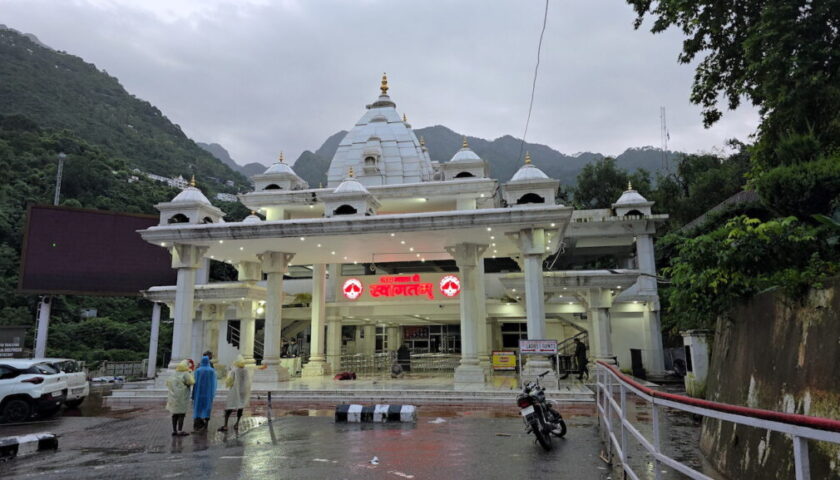Mosquito Menace: Jammu Fights a Growing Dengue Crisis
By : Javid Amin | October 6, 2025 | Srinagar
Over 1,200 Cases Reported in 3 Weeks; Hospitals Overloaded as Civic Inaction Deepens Outbreak
A silent epidemic is creeping through Jammu. With more than 1,200 confirmed dengue cases in just three weeks, the city is witnessing one of its worst post-monsoon health crises in years — a battle fuelled by unchecked mosquito breeding, poor sanitation, and delayed government response.
Hospitals are overflowing. Fogging trucks hum through the streets far too late. And ordinary residents are left to fight the dengue surge with repellents, homemade remedies, and growing frustration.
The Numbers Behind the Outbreak
According to the Jammu Health Department, the scale of infection has grown alarmingly:
-
Confirmed cases: 1,200+
-
Suspected under observation: 600+
-
Hotspot zones: Talab Tillo, Janipur, Gandhi Nagar, Trikuta Nagar, and parts of Bantalab
-
Most affected groups: Children and elderly
Doctors at leading hospitals report a steady stream of patients suffering from high fever, rashes, body ache, joint pain, and low platelet counts — the hallmark symptoms of dengue hemorrhagic fever.
“We’ve converted general wards into dengue units. Platelet shortages are a real concern,”
said Dr. Renu Sharma, senior physician at Government Medical College (GMC) Jammu.
Hospitals Under Pressure: The Frontline Struggle
From GMC Jammu to private institutions like ASCOMS and Narayana Hospital, every healthcare facility is stretched to its limit.
Lab technicians work in double shifts. Blood banks are running low on platelets.
At GMC, families line up outside test labs, some carrying mosquito nets and home-cooked meals as they wait for beds.
For many, the crisis feels eerily similar to the COVID-19 chaos — only this time, the enemy is much smaller, but just as deadly.
Civic Response: Too Little, Too Late
The Jammu Municipal Corporation (JMC) launched fogging drives and awareness campaigns — but only after the numbers had already spiraled.
“They waited for the numbers to explode. We’ve been complaining about stagnant drains for months,”
said Rakesh Gupta, a shopkeeper from Janipur.
Local councillors admit budget shortages and staff gaps delayed early prevention.
In some colonies, water-logged drains have turned into permanent mosquito nurseries.
Meanwhile, social media is awash with videos showing fogging drives conducted in broad daylight — when adult mosquitoes are least active — a glaring indicator of poor planning.
Why the Outbreak Spread So Fast
Experts attribute Jammu’s dengue explosion to a mix of weather, waste, and weak surveillance:
-
Post-monsoon humidity creates ideal breeding conditions
-
Stagnant water in drains, coolers, and construction sites
-
Uncovered water tanks in residential areas
-
Irregular fogging and larvicidal spraying
-
Low public awareness about mosquito life cycles
“Aedes mosquitoes breed even in a spoonful of clean water. Awareness is our first vaccine,”
said Dr. Neeraj Gupta, Epidemiologist, Health Department.
Public Voices: ‘We’re Fighting Dengue Alone’
Frustration is mounting across Jammu’s middle-class neighbourhoods.
Parents, shopkeepers, and housing societies are taking matters into their own hands — distributing repellents, cleaning drains, and holding community drives.
“We need prevention, not panic,” tweeted a parent from Talab Tillo.
“Our kids are falling sick, and the system is still waking up.”
Residents are demanding:
-
Daily health bulletins from the administration
-
Free testing and treatment for low-income families
-
Accountability from municipal and health officials
-
Temporary school closures in hotspot zones
Doctors Warn: Don’t Self-Medicate
Amid growing panic, doctors urge residents not to rely on painkillers like ibuprofen or aspirin — which can worsen bleeding tendencies in dengue patients.
Instead, they recommend:
-
Hydration and rest
-
Paracetamol for fever
-
Immediate testing for any fever lasting more than 48 hours
-
Platelet monitoring under medical supervision
“Early detection saves lives,” says Dr. Anjali Sharma, pathologist at ASCOMS.
“Don’t wait for rashes or bleeding — get tested early.”
What You Can Do: 7 Dengue Prevention Tips
-
Empty stagnant water from pots, coolers, and birdbaths every 2–3 days
-
Cover all water containers tightly
-
Use mosquito nets and repellents
-
Wear long-sleeved clothing
-
Keep surroundings clean and dry
-
Encourage neighbours to join cleanup drives
-
Call local civic helplines to report stagnant water
Remember: One mosquito bite can change a life. Prevention begins at home.
Looking Ahead: Lessons from the Crisis
Public health experts warn that dengue is becoming endemic in parts of Jammu due to climate change and urban sprawl.
Without robust surveillance, vector control, and data transparency, outbreaks will continue year after year.
The JMC and Health Department have now pledged to set up:
-
A dedicated vector control cell
-
Real-time GIS mapping of dengue hotspots
-
Weekly fogging schedules
-
Public reporting helplines
However, citizens remain skeptical. “Announcements are made every year. What changes is only the number of patients,” said Farooq Ahmed, a resident of Gandhi Nagar.
Final Word
Jammu’s dengue crisis is more than a seasonal health alert — it’s a warning sign.
Behind every fever chart and platelet count lies a story of civic apathy, policy delays, and avoidable suffering.
As fogging trucks roll and officials make promises, one question echoes across the city:
Will we act on lessons learned — or wait helplessly for the next wave?




